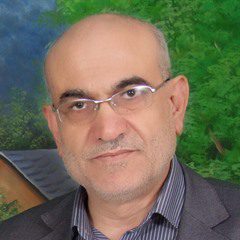There were no surprises in the recent decisions made by the Palestinian Central Council (PCC). The decisions made were the same ones leaked before the meeting and can be summed up in the following three decisions:
- Transition from the phase of autonomy to the phase of a state that is fighting for its independence.
- Task the PLO Executive Committee with suspending the recognition of Israel until it recognises a Palestinian state within the 1967 borders, cancels the decision to annex East Jerusalem and ends settlement activity.
- Renewal of its decision to end all forms of security coordination and disengage from the relationship of economic dependence established by the Paris Economic Agreement. This aims to achieve independence for the national economy. The PCC will request that the PLO Executive Committee and the Palestinian state institutions start implementing this.
It is important to begin by saying that it would have been better to hold the meeting outside the occupied territories, at least in order to emphasise the refugee issue. Instead the PA continued to impose its domination over the PLO, which began with the Oslo Accords in 1993.
The three aforementioned decisions definitely need to be considered and studied. With regard to the first decision it refers to transitioning from an authority to a state. I am drawn to the term “independence” in this decision, as if we are talking about a state that is being colonised, not occupied by a force recognised by the entire world as an occupation. The result of using this term is that the current situation of the authority is being emphasised while eliminating anything that was said before about rejecting the concept of “an authority with no power” or threatening to dissolve the PA.
Read: US, EU remain at odds over Jerusalem
The second decision to suspend the recognition of Israel is a good thing, but I do not know why the term “suspend” is used rather than “withdraw”. However, it seems that there were several “wise” individuals present who refused to “escalate” matters.
The third decision is also a good one, as it refers to putting an end to security coordination. I must note that this decision was made in the past by the PCC but was not implemented.
Regarding the second part of the decision, related to ending the PA’s economic dependence on Israel, it is strange and I do not know how it will be implemented in light of the occupation’s control over everything on the ground and in the sky.
In terms of the last part of the second decision, which is related to the Palestinians in the occupied territories, it “stresses our people’s right to exercise all forms of resistance against the occupation, in accordance with international law, and their right to continue to exercise peaceful popular resistance, support it, and enhance its abilities”.
Although this does not deny armed resistance by talking about “all forms of resistance” the essence of the PA’s position, which was reiterated by the President’s opening speech, still emphasises “peaceful resistance”, the form and identity of which is still unknown. We have not seen enough clashes with the checkpoints, and more importantly, we do not see a clear position on the occupation forces’ daily raids carried out in all areas in order to arrest anyone who thinks of resisting.
Read: PLO calls for Arab countries to boycott US over Jerusalem decision
Hence, the PCC convened and dispersed, and nothing changed on the ground, including security coordination. It has been said that these decisions were actually recommendations to the Executive Committee, which is the decision-making party, and therefore we will be waiting to see if any changes are made.
Some have said that remaining steadfast in the face of American pressures and rejecting the so-called “deal of the century” is an achievement in itself. While this is true to a certain extent, the failure to use this to launch a new wave of struggle that ends the state of stalemate and delusion, as well as the equation of “occupation with no costs”, according to Abbas himself, is unacceptable.
The views expressed in this article belong to the author and do not necessarily reflect the editorial policy of Middle East Monitor.









